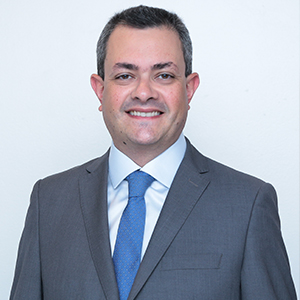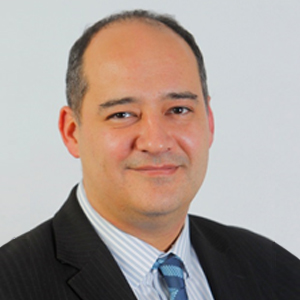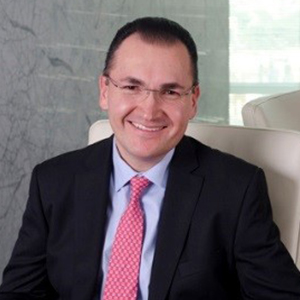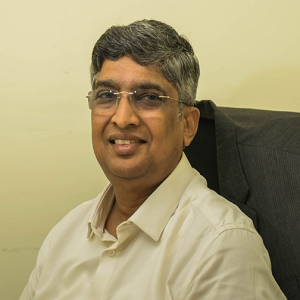“Financial security means different things across Latin America. Education is the first step to smart retirement.”
Latin America is a large – and diverse – area of economic growth. Many countries are experiencing renewed economic expansion, while for others; the road remains bumpy amid political fragmentation. According to the International Money Fund, Latin America’s economic recovery is gaining momentum since recessions in countries such as Brazil and Argentina are coming to an end. Private consumption is also up, especially in commodity-producing countries.
Mercer’s recent global study, Healthy, Wealthy and Work-Wise: New Imperatives for Financial Security, looked at attitudes towards financial security and beliefs about retirement. The 12-country study surveyed 7,000 adults across six age groups, as well as 600 senior executives in business and government.
Globally, more than two-thirds (68%) of adults surveyed expect to keep working in some capacity and never fully retire. The stress of financial security affects all of us — no matter what our age, career stage or occupation — as we each face the prospect of outliving our savings. Societies, employers, and financial intermediaries have much to gain by taking immediate action to address the looming long-term savings gap.
As economies mature, emerging middle classes and improving healthcare, mean populations now have to plan for more than just the day-to-day, but for a longer retirement. Globally, two-thirds of respondents expect to live past age 80, and 44% expect to live into their mid-to-late 80s. Although most respondents expect to maintain the same quality of life in retirement, only 30% are confident that their savings, income or pension will be enough.
While financial security is a critical need around the world, how Healthy, Wealthy & Work-Wise we are, varies by country. The study found many common denominators among countries globally, as well as some nuanced differences when it comes to financial health and retirement. In Latin America, countries such as Argentina, Brazil, Chile, and Mexico, are particular areas of change, based on demographics and the evolving nature of work. These new dynamics bring both challenges and opportunities.
Retirement is shifting in Latin America and around the globe
Retirement is not what it used to be. Worldwide, not only are we living longer, healthier lives, but we are also working longer, either by choice or as a result of economic necessity. For many, the traditional retirement age of 60-65 belongs to a bygone era. The Mercer research found that 68% of people globally do not ever expect to retire or expect to keep working in some capacity. Seventy-four percent of 18 to 24 year-olds, and 82% of those aged 65 and older, do not expect to retire fully. The era of retiring confidently, with full pension benefits or sufficient government or social security stipends, is no more. Today, the responsibility of planning for and funding retirement ultimately rests with the individual.
Mercer research found that, globally, 81% of respondents felt personally responsible for their retirement income, with 52% taking sole responsibility and 29% saying they have some shared responsibility alongside their governments and employers. Despite the sentiment of personal responsibility, governments and employers still play a large, albeit different role in retirement planning.
Complex and changing pension systems complicate retirement
Pension systems, globally, cannot be relied on if people want to thrive in retirement. Many people, particularly in Latin America, do not contribute to or pay enough into their retirement to maintain their pre-retirement lifestyles. For instance, in Mexico, the pension system only pays 30% of someone’s last salary, which is one of the lowest according to the OECD. Additionally, many in Mexico say they do not understand the pension system, and in turn, they do not pay into it. There is also the issue of reaching rural populations who work in an informal, cash-only system.
In Argentina, a market historically plagued by high inflation, the recent pension law reform raised the retirement age to 70, for both men and women, in an effort to maintain the purchasing power of pensions. The reform also included a change in the rate of adjustment of benefits. From now on, the size of the benefit payment will be revised four times per year (or every three months) instead of twice a year, and will follow the inflation index by 70% and the wage index by 30%. Additionally, 90% of people in Argentina who are retirement age receive a benefit – the majority (nearly 70%) receives the minimum benefit of USD 361. Women who may have the added complication of being in and out of the labor market, due to child bearing, may not qualify for the maximum contribution, which is based on a 41-year time span.
Brazil has one of the most benevolent public systems in the entire region. Changes discussed over the last several years, and the country is expected to vote on reform. The expected outcome is based on two pillars: postponing retirement ages and reducing benefits. This will lead individuals to an even greater need to plan for the future, counting on personal and employers´ investments to contribute to their long-term savings.
Education is the first step to smart retirement in Latin America
Financial security means different things across Latin America. Spending time with family, and even continuing to work in some capacity, is considered a success for many. But planning for retirement starts with education, which is much needed throughout the region. In Argentina, savings motivations are low. Many people live and spend for the day, with little to no regard for future planning. With the government still in flux about how to ensure financial security, educating Argentina’s people now remains a priority.
In Brazil, like in Argentina, only a small part of the population understands the mechanisms of savings. This leads to a significant gap between the actions that would help create a solid financial foundation and those executed. Fortunately, the country has seen improvements in this area. Financial institutions, companies, and the government have been encouraging financial education programs.
Advice and tools are other components to planning for the future, and an important part of helping people save for retirement. The Mercer research found that, globally, people trust the advice and tools offered to them by their employers for planning and investing. Globally, 86% of employees say that if their employer improved benefits or added access to an investment plan, it would have a positive impact on them at work, resulting in higher job satisfaction and greater commitment to the organization.
Workers are looking to employers as a trusted provider of easy-to-use, secure digital tools. And it’s not just the millennials —the largest segment of the workforce – seeking financial tools and guidance.
Ninety-three percent of workers under the age of 35 are interested in secure, easy-to-use online financial tools to help manage their finances, and the same is true for 85% of total respondents. Additionally, across all age groups, two-thirds are comfortable managing their savings using mobile banking, online tools or smart apps. In Brazil, for example, the appetite to invest is increasing, and many fintech companies are leveraging this opportunity to encourage people to learn more.
The study also found that employers are considered trusted sources for advice and access to improved benefits. Helping people better manage their health, wealth and careers enhances an organization’s value proposition and its ability to attract top talent — all while yielding higher job satisfaction, greater workplace commitment, and less time at work stressing about financial matters.
Smaller families signal changes in cultural norms
Fertility rates are low across Latin American countries, as they are in many parts of the world. This affects many areas of life, especially how older people live.
Multigenerational households used to be a cultural norm in the region, in that older people live with or are taken care of by their children. If a family is smaller, there are not as many options for them. That means that people need to consider what kind of lifestyle they want to live in retirement, and the steps they will need to take to get there.
Focus on Chile
Chile is one of Latin America’s rising stars due to surging investments and healthy personal consumption. As one of the countries researched in the Healthy, Wealthy and Wise study, its distinct results differentiate the country from many countries around the globe. Chileans expect to be able to afford to ‘live as long as they live’ but are less confident – especially women – that they will be able to maintain their desired quality of life after retiring. Overall, they are more likely than other nations to feel financially insecure and are less confident in their ability to cover unforeseen expenses.
Stress about retirement links to general economic conditions in Chile and the type of pension fund(s) they currently invest in – unsurprising as the legitimacy of Chile’s defined contributions pension system is under question, and there have been protests as many schemes are paying out less than anticipated.
Chileans are positive in other areas, with two-thirds expecting to live beyond 80 and with intentions to retire before they reach 70. Once retired, expectations of income are relatively high with Chileans more likely to anticipate living off 60% or more of their pre-retirement income. High expectations may be linked to eight in 10 Chileans intending to continue work after retirement and needing this income after retirement as a source of funds. Chileans are also more willing than other nations to save a greater proportion of their disposable income now to make their desired lifestyle happen in future.
Additionally, Chilean individuals are more likely to see their overall health, regarding ability to work and earn today, as excellent or very good. This ‘good health’ is achieved by trying to maintain a work-life balance and a reliance on ‘good’ genes. Their definition of a good lifestyle in retirement is spending time with loved ones, being debt free and affording more than just the bare necessities.
As expected, given the privately managed pension system in Chile, individuals place the responsibility for retirement income firstly on themselves (70%), but secondly on pension funds or the government. People in Chile are more likely to pay into an employer matching defined contribution plan than other countries within Latin America. As a result, any improvements to access or overall benefits of their available employer pension plan would have a positive impact on Chilean workers, in particular, job satisfaction, a sense that the employer was more caring and less financial stress.
Chileans are also more likely than other nations to have used a financial advisor, investment professional or an online retirement savings calculator/tool to help calculate their required retirement savings amount. They are interested in online financial tools and are comfortable with securely storing personal data. Chileans are also more likely to trust their current employer (83%), online financial tools, apps and websites (74%) or personal financial advisors (61%), but not the government (37%) to provide sound advice on financial planning.
One of the more surprising learnings from the research is how wide a gap there is between the individual’s expectations of retirement and long-term savings and that of their employers and their governments. The opportunities to ensure financial preparedness across a vast region like Latin America are significant. The region has already experienced meaningful growth, and it is only expected to continue. Ensuring financial security requires collaboration and communication — between employee and employer, business and government, and government and people.








 India's NPS has gone through a few iterations and continues to evolve, but the plan is helping to boost retirement savings among Indian citizens. It's also shifting citizens' expectations: Instead of relying on younger family members to support them in their old age, many are now adjusting their savings and preparing to support themselves in their retirement years.
On top of that, NPS is one of the cheapest investment products. Overall costs of the NPS are far lower than those of other products, and it is perhaps the cheapest pension product available.
3 Lessons You Can Learn From India's Model
For organizational leaders around the world, India's experiment in providing a national pension program for all its citizens offers a number of valuable lessons.
1. Unsustainable National Debt Requires New Solutions
Long before the NPS was launched, India's federal and state government employees were covered by a tax-funded defined benefit pension program that provided a 50% replacement wage at retirement with an inflation-linked adjustment. In the mid-1980s, this program cost the country less than $0.5 billion annually, but by 2006, with people living longer, the price tag jumped to more than $600 billion per year.3
Maintaining the program was unsustainable, and leaders realized they needed to develop a replacement program to ensure successful retirements for future workers and protect the nation's finances. Since the launch of NPS, all new government employees have been enrolled in it, fostering a responsibility among workers to prepare for their own retirement and protecting the government from continuing to run up unsustainable pension debt.
2. Tax Advantages Are Key for Supplementary Retirement Savings Plans
Most participants choose to invest in the NPS due to the tax benefits. However, some Indian citizens report that they did not opt for participating in the NPS as they perceived that some mutual fund instruments and private retirement savings vehicles have greater potential to beat the market and also provide better tax benefits.
In order to encourage citizens and promote NPS, the government developed three categories of tax-saving options. The third of these options is exclusively for salaried employees whose contributions are made through the corporate model of NPS. All three categories can be availed together and exclusive of each other.
Moreover, there was a recent relaxation in the tax-free withdrawal limit of corpus allowed at the time of retirement (from an earlier limit of 40% of corpus to 60% of corpus). Originally, though 60% was allowed to be withdrawn, the balance of 20% was taxed at normal rates, and making it entirely tax free has made it even more attractive.
While a few senior executives may have access to other retirement savings plans, including employer-sponsored Defined Contribution superannuation plans, most of the population (particularly among the working class) do not have access to other retirement savings plans, and hence, the tax advantages inherent in NPS are crucial encouragement for them to save for retirement.
3. Citizens Need Education About the Model's Benefits
While the NPS offers a number of benefits to savers, participation rates remain relatively low.4 Some respondents to a recent survey revealed that not understanding the importance of saving and the advantages of compounding interest could have influenced their choice to stay out.
NPS leaders have used a variety of methods for communicating and educating the population about the system. For instance, pilot programs staged in two different geographic areas hosted workshops, meetings and camps targeting unorganized sector workers and key stakeholders. Information was also distributed through cable television networks, radio, mobile publicity vans, seminars and road shows.
India continues to measure the success of its pension program and may make more changes in the future. Many countries are struggling to solve the potential challenge of poverty in old age, but the NPS in India is an encouraging step toward protecting the future for many of its citizens, and it's worth taking a look at the model for inspiration.
Sources:
1. United Nations: Department of Economic and Social Affairs,"World Population Prospects — 2017 Revision: Global life expectancy," United Nations: Department of Public Information, June 21, 2017,
India's NPS has gone through a few iterations and continues to evolve, but the plan is helping to boost retirement savings among Indian citizens. It's also shifting citizens' expectations: Instead of relying on younger family members to support them in their old age, many are now adjusting their savings and preparing to support themselves in their retirement years.
On top of that, NPS is one of the cheapest investment products. Overall costs of the NPS are far lower than those of other products, and it is perhaps the cheapest pension product available.
3 Lessons You Can Learn From India's Model
For organizational leaders around the world, India's experiment in providing a national pension program for all its citizens offers a number of valuable lessons.
1. Unsustainable National Debt Requires New Solutions
Long before the NPS was launched, India's federal and state government employees were covered by a tax-funded defined benefit pension program that provided a 50% replacement wage at retirement with an inflation-linked adjustment. In the mid-1980s, this program cost the country less than $0.5 billion annually, but by 2006, with people living longer, the price tag jumped to more than $600 billion per year.3
Maintaining the program was unsustainable, and leaders realized they needed to develop a replacement program to ensure successful retirements for future workers and protect the nation's finances. Since the launch of NPS, all new government employees have been enrolled in it, fostering a responsibility among workers to prepare for their own retirement and protecting the government from continuing to run up unsustainable pension debt.
2. Tax Advantages Are Key for Supplementary Retirement Savings Plans
Most participants choose to invest in the NPS due to the tax benefits. However, some Indian citizens report that they did not opt for participating in the NPS as they perceived that some mutual fund instruments and private retirement savings vehicles have greater potential to beat the market and also provide better tax benefits.
In order to encourage citizens and promote NPS, the government developed three categories of tax-saving options. The third of these options is exclusively for salaried employees whose contributions are made through the corporate model of NPS. All three categories can be availed together and exclusive of each other.
Moreover, there was a recent relaxation in the tax-free withdrawal limit of corpus allowed at the time of retirement (from an earlier limit of 40% of corpus to 60% of corpus). Originally, though 60% was allowed to be withdrawn, the balance of 20% was taxed at normal rates, and making it entirely tax free has made it even more attractive.
While a few senior executives may have access to other retirement savings plans, including employer-sponsored Defined Contribution superannuation plans, most of the population (particularly among the working class) do not have access to other retirement savings plans, and hence, the tax advantages inherent in NPS are crucial encouragement for them to save for retirement.
3. Citizens Need Education About the Model's Benefits
While the NPS offers a number of benefits to savers, participation rates remain relatively low.4 Some respondents to a recent survey revealed that not understanding the importance of saving and the advantages of compounding interest could have influenced their choice to stay out.
NPS leaders have used a variety of methods for communicating and educating the population about the system. For instance, pilot programs staged in two different geographic areas hosted workshops, meetings and camps targeting unorganized sector workers and key stakeholders. Information was also distributed through cable television networks, radio, mobile publicity vans, seminars and road shows.
India continues to measure the success of its pension program and may make more changes in the future. Many countries are struggling to solve the potential challenge of poverty in old age, but the NPS in India is an encouraging step toward protecting the future for many of its citizens, and it's worth taking a look at the model for inspiration.
Sources:
1. United Nations: Department of Economic and Social Affairs,"World Population Prospects — 2017 Revision: Global life expectancy," United Nations: Department of Public Information, June 21, 2017, 




